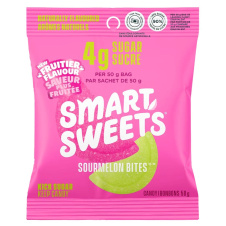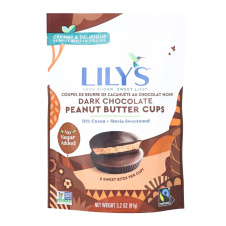
What Is Intuitive Eating and Is It Right For You?
Intuitive eating can be a confusing concept. We break down the basics of this newer non-diet approach--Are you ready to start healing your relationship with food?
Looking for a way of eating that is kinder, gentler, and more sustainable? Look no further than intuitive eating! This unique approach is all about listening to your body's natural cues and honouring them—not because they're right or wrong, but because they're yours! If you want chocolate, you can have chocolate! If you want candy, you can have candy! If you want chips, you can have chips! Intuitive eating is about trusting yourself enough to know what feels good for you right now and allowing yourself permission to do just that. It’s a unique philosophy that offers something completely different from fad diets that are so prevalent today. With intuitive eating, you can develop a healthy and sustainable relationship with food.
If you've been struggling with health or weight issues, or are simply tired of dieting and measuring everything you eat, then intuitive eating might be just what you need!
What is Intuitive Eating?
Intuitive eating is a non-diet approach to eating that is based on listening to your body's hunger and fullness cues. It focuses on eating what you want, in a healthy way. Intuitive eaters are able to eat when they're hungry, stop when they're full, and make healthy food choices without the need for willpower or external restrictions.
In contrast, dieting involves restricting certain foods or types of food while focusing on macronutrient amounts (carbohydrates, fats, and proteins) or calories. While intuitive eating can look like dieting at times, it differs in that it does not restricts any specific foods; instead, it promotes balance and variety in your diet by honouring internal hunger cues like when it's time to eat and feeling satisfied after meals. It's an approach that helps people learn how to trust themselves around food rather than feeling guilty about what or how much they've eaten.
Principles of Intuitive Eating
The 10 Principles of Intuitive Eating are the cornerstones of a healthy relationship with food. These principles will help you get in touch with your body’s natural signals and help to overcome any unhealthy habits you may have developed over the years. When you practice these principles, you can learn to listen to what your body needs—and then honour it!
- Reject The Diet Mentality
Diet culture has convinced us that losing weight is the answer to all of our problems. If we just worked hard enough, were disciplined enough, and disciplined ourselves enough times with diets, we could lose all of the weight and finally be happier with ourselves and our bodies. We focus so much on the numbers–whether it’s our measurements, or our weight, that we begin to associate our self-worth with it.
But, if you want to heal your relationship with food—and yourself—you have to let go of the diets. And as soon as you start to let go of the dieting mentality, things will start to change. It's really hard to let go of the diet mentality. And it can be even harder to stop feeling like a failure every time a new diet stops working and you gain back all of the weight. But, if you want to heal your relationship with food—and yourself—you have to let go of the diets. - Honour Your Hunger
Eating when you’re hungry and stopping when you’re full is a lot harder than it sounds.
In fact, by dieting, you’ve been undermining your relationship with your own body. But with practice, you’ll learn to be in tune with your body’s hunger and fullness cues. Learning to honour this first biological signal sets the stage for rebuilding trust in yourself and in food. - Make Peace With Food
We’re told not to eat this or that, not to eat too much, or too little. But there’s a problem with these food rules: they don’t work. When we don't allow ourselves to eat what we want when we want it, we create feelings of deprivation. And when those feelings build up enough over time, they often lead us to crave, or even binge, on whatever foods we're trying so hard not to eat.
And so when you give yourself unconditional permission to eat whatever you want whenever you want—no rules or regulations about what foods are "good" and which ones are "bad"—you give yourself a chance to stop obsessing over what might happen if you eat too much or too little and focus instead on enjoying everything life has to offer. That means no restrictions on any foods whatsoever—not even dessert! So if you want extra sauce with those wings, extra creamer in your coffee, or even another slice of cake–or two, you can! This way, there will be no more deprivation and no more guilt over those "forbidden" foods. - Challenge The Food Police
It's time to challenge the food police–the voices inside our heads that monitor everything we eat and tell us whether it's good or bad, healthy or unhealthy. They make us feel guilty when we have a piece of chocolate cake and happy when we eat a salad for lunch.
It's important to remember that the food police aren't real people; they're just voices inside your head that are trying to control your relationship with food and dictate what you should be eating. But they're not real—they're just thoughts that have been internalized by diet culture and passed down.
You can give yourself permission to eat whatever you want. You don't have to think about it in terms of "good" or "bad." It's just food! And you have the right to have all of it! - Discover The Satisfaction Factor
It's easy to get caught up in the cycle of diet culture and lose sight of what is truly important: the pleasure and satisfaction that can be found in the eating experience. When we eat what we want, in an environment that is inviting, this experience can be a powerful force in helping us feel satisfied and content. - Feel Your Fullness
When you eat intuitively, you can pay attention to what your body feels like when it is comfortably full. Pause mid-meal and ask yourself how hungry you feel right now. If you are still hungry after eating a little bit more, then keep going! If not, then stop there and save the rest of your meal for later. You don’t need to stay in the clean plate club if that is how you grew up; nor do you need to finish a single-serving packaged item if that is what works for you right now. Listen for the body signals that tell you that you are no longer hungry—and observe the signs that show that you are comfortably full. - Cope With Your Emotions With Kindness
When we experience big emotions in our lives, it's easy to turn to food for comfort—or even just to distract us from the pain we're feeling. We may try to smother those feelings with food. But eating won't solve your problems. It might make you feel better for a little while, but then you'll just be left with a full stomach and no closer to resolving your issues than before.
Emotions like anxiety, loneliness and boredom can be uncomfortable—but they don't have to be overwhelming or unmanageable if you approach them with kindness and curiosity instead of judgment and shame. Ask yourself, why are you upset? What can you do about it? How can you help yourself? - Respect Your Body
When you look in the mirror, what do you see? A reflection of all your imperfections? An object that needs to be changed or fixed? When you really think about it, how many times a day do you say something complimentary and appreciative of your body? And how many negative or critical things?
Your body doesn't deserve this kind of treatment—not from you and not from anyone else. Your body deserves respect! Respecting your body doesn't mean that you have to love every little thing about your body every single day. It means appreciating the power and beauty that your body has and treating it with care! This can look like moving your body and providing it with nutrient-dense foods. And the more you take care of your body—giving it what it needs in terms of nourishment and movement—the better you'll feel about yourself. - Movement–Feel The Difference
Exercise is not something that should be a chore or something that we have to do in order to lose weight or “earn” food. It is something that can be enjoyed for its own sake and should be approached from a place of self-love and enjoyment. Shift your focus to how it feels to move your body, rather than the calorie-burning effect of exercise. Enjoy what your bodies can do, not punish them for past eating or earn future meals by exercising. - Honour Your Health–Gentle Nutrition
Gentle nutrition is about making food choices that honour both your health AND taste buds while making you feel good. If you want a sweet treat, try a delicious high-protein cookie! Or if you want savoury pasta, try a fibre-packed mac & cheese instead! It's all about finding a balance between what your body needs and what makes it happy. And yes—it can be hard! But once you get into the habit of making better choices, eating well becomes second nature—and so does feeling great!
How Do I Know If Intuitive Eating Is Right For Me?
If you want to eat more mindfully, if you want to feel more in control of your eating, or if you want to feel more in control of your life, then intuitive eating is for you. It's not something one would do in order to pursue a specific body-related goal. It's meant to improve your relationship with food and other aspects of yourself that have been affected by dieting culture and the dominant narrative around health and wellness.
If that sounds like it could be the case, here's a quick quiz:
- Do you feel like there is something wrong with your relationship with food?
- Are you tired of dieting and diet culture? Do you want to end the cycle of yo-yo dieting?
- Do you want to stop obsessing over the number on the scale?
- Do you want to be able to eat all foods without any guilt, shame or regret?
- Do you want to eat what you want, when you want?
Benefits of Intuitive Eating
- Higher HDL (“good”) cholesterol
- Lower triglycerides
- Lower rates of emotional eating
- Lower rates of disordered eating and eating disorders
- Higher self-esteem
- Better body image
- Proactive coping skills
Notice how intuitive eating benefits not only your physical health but also your mental health. It can reduce the negative side effects associated with dieting like lower self-esteem, and eating disorders, and focus on weight instead of health-promoting behaviours. It’s important to remember that mental health is health too, and any dietary change that negatively affects mental health probably isn’t actually making you any healthier. That’s what makes a non-diet approach like intuitive eating so effective!
How To Start Intuitive Eating
- To reduce your exposure to the idea that your body needs to be a certain way, remove any tools, websites, or people who promote weight loss or the “ideal” body.That means deleting your apps if it prompts daily weigh-ins or tracking calories, removing social media accounts that promote unrealistic standards of beauty (or just unfollowing them), and exiting any conversation that starts with "Have you lost weight?" or "I wish I could look like her". Try finding more body-positive outlets—and surround yourself with more positive people who support you in being exactly who you are right now! It’s hard to focus on rejecting the diet mentality when you are constantly being bombarded by it! Staying away from these things will help you avoid comparing yourself to others and feeling like you need to change your body to fit in.
- Eat mindfully. It’s a great way to tune into your fullness cues, which are the signals from your body that tell you when you're hungry and when you're full. Try asking yourself how it tastes! Do you like it? Are there any flavours or textures that stand out? Does it satisfy you? When you pay attention to the experience of eating, it can help you to connect with your satisfaction (or dissatisfaction) levels and helps you tune into your fullness cues and make sure you don't overeat!
- Start with small changes.Try adding new food that you previously restricted one at a time and see how it affects your energy levels and mood. As you build trust and peace with eating (and with your body), these foods will lose their power over your mindset and will no longer be something you feel the need to avoid.
- Pause and really listen to your inner dialogue.What is fueling your decisions about food choices? When we tell ourselves we have to eat something, or that we're not allowed to eat something else, we set ourselves up for failure. If you're hearing words like "should" or "better" or "healthier" as reasons to eat something, remind yourself that you have unconditional permission to eat all foods. You deserve to feel nourished and satisfied by whatever it is you choose to put in your mouth. When you honour this truth, you are actually creating space for real change!
Final Thoughts
The most important takeaway from this article is that intuitive eating is a way to treat your body and your mind with kindness. It doesn’t require strict rules or restrictions but instead helps you listen to your body and understand what it needs at any given time. Intuitive eating encourages healthy habits like eating when hungry, enjoying food without guilt or shame, and stopping when full. This can help prevent overeating and improve self-confidence around food choices—both of which are great things for your body and mind!





















